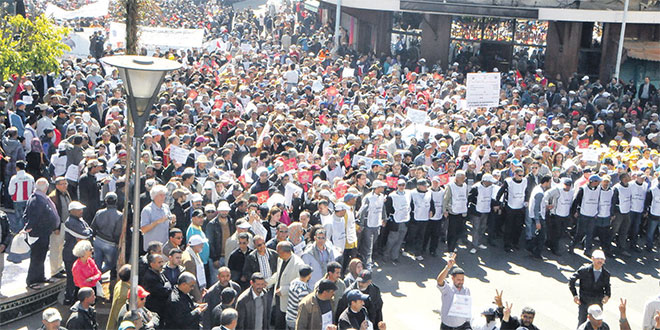The laborious social dialogue between the government, employers, and the most representative trade unions (UMT, UGTM and CDT) led to an agreement on April 30 relating to several issues. Some of these points, such as a first 5% increase in the minimum wage on September 1st with retroactive effect to January 1st, 2020, have already been implemented.

At the end of its Council meeting on Friday, September 16, the Government declared that it had met the commitments made during the first round of the social dialogue, namely the reduction of the contribution period from 3,240 days to 1,320 days in order to receive an old-age pension. In addition, people who have reached the legal retirement age and totaling 1,320 days can collect their contributions. It should also be recalled that the revaluation of 5% with retroactive effect to January 1, 2020 of Social Security pensions in favor of 600,000 retirees was finally implemented at the end of last November. Nonetheless, many other points are well overdue. Among the latter is the enactment of the law on the exercise of the right to strike, where the new piece of legislation was planned within the framework of the same social dialogue by January 2023 at the latest. With less than a week to go before the end of the year, no draft law has come into being, and therefore can never be discussed between stakeholders before it is introduced into the legislative circuit.
Some sources speak of results to be achieved the end of January 2023, which is impossible to do since this period is too short. According to our information, the employers have officially contacted the ministries concerned to have more visibility on the enactment of the law in January 2023 as provided for by the agreement, but for the moment no answer has been sent to the employers’ association (CGEM).

When questioned by our newspaper, a member of the UMT union, which is a stakeholder in the social dialogue, said “that what is urgent is rather the improvement of the purchasing power of employees and the fight against soaring prices”, adding that “if the piece of legislation suffers delays in its implementation, it is because the government is waiting for the right moment”. The agreement specifies that the three signatory parties would work for “the piece of legislation to be enacted before the end of the first session of the current legislative year”, that is to say before the beginning of January 2023.
In the email, he had sent to the members of its employers association, on Saturday, April 30, Chakib Alj, president of CGEM, made it clear that “the second increase in the minimum wage of 5%, scheduled for September 2023, is conditioned by the respect of the following two commitments: the enactment of the law on the exercise of the right to strike on January 1, 2023 and the amendment of the Labor Code on July 1, 2023”. Though, for employers, the second increase in the minimum wage is conditional on the implementation of these two points, this obligation does not appear in the final version of the agreement. The latter is content to speak rather of “commitments”.
The draft text could be proposed as a working basis for social dialogue. The social partners will then be invited to make proposals. But for the moment, no information has been leaked as to the timing of the talks between social dialogue stakeholders.
Hassan EL ARIF


























